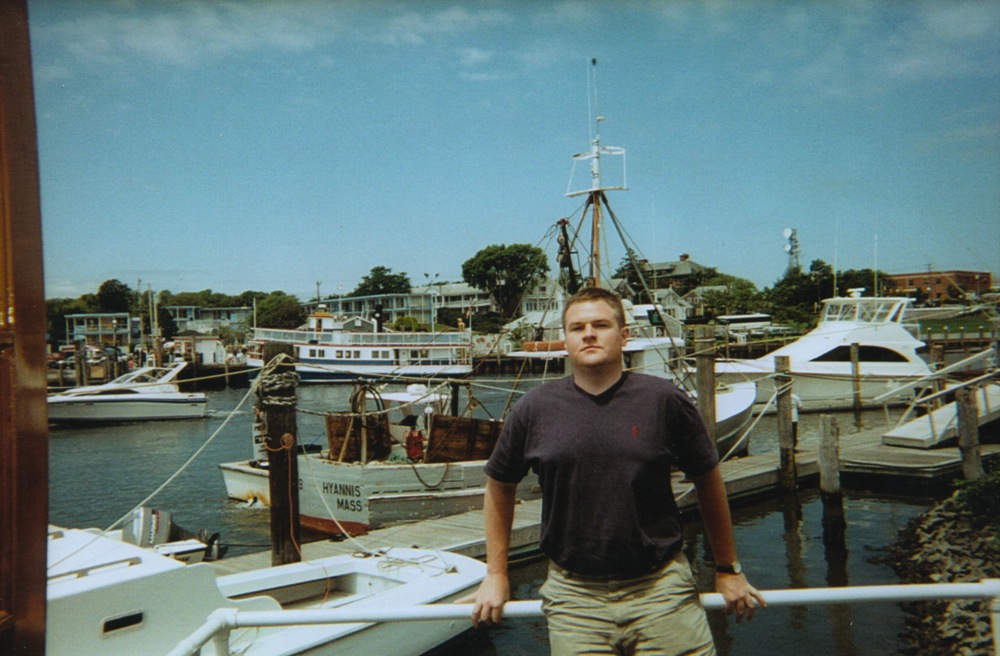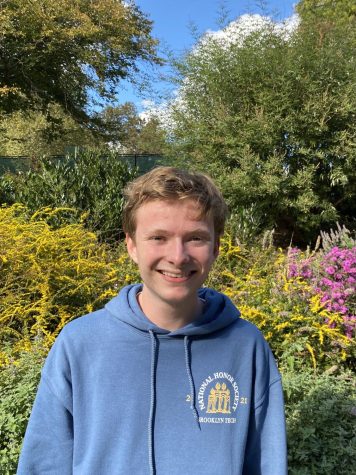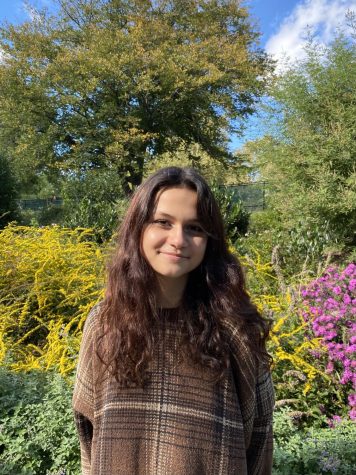Twenty Years Later: 9/11 Still Has a Lasting Legacy at Brooklyn Tech
Faculty and students of Brooklyn Technical High School reflect on the attacks of 9/11.
November 12, 2021

In a sea of students with no memory of the attacks on the World Trade Center, there is significant debate on how 9/11 should be remembered at Tech—was it a moment when the city came together and rebuilt, or an event that led the United States on a path towards greater xenophobia and militarism? There is little question, however, that the attacks have had a lasting impact on the city and world surrounding us.
Ms. Lori Parizman, a health instructor, was teaching at Tech in the same room she is in now—3W18—when the attacks occurred. “There was a beautiful view of the twin towers from our window,” she says. “We didn’t see the collision at first because the shades were drawn, so we didn’t know what was going on until the [then] principal came onto the loudspeaker, and the kids went to the windows yelling.” Ms. Parizman also noted how the impact of 9/11 was felt long into the school year as Stuyvesant, displaced because of the attacks, was housed in the same building with Brooklyn Tech, with Brooklyn Tech students attending school in the morning and Stuyvesant students attending in the afternoon.
Mr. Sean McManamon, an AP World History teacher, was teaching at Fashion Industries High School in the Garment District during the fateful day. He says, “When the second plane hit, I remember one teacher asked, ‘Do you think that building could ever fall?’ And I said, ‘No way. No way. These buildings are meant to be really strong.’ And then I stopped, because I knew my cousin was in the building. I tried calling, but there was no answer.”
He later found out that his cousin and close friend, Sean Fegan, had perished. He was not alone – 2,966 people died because of the attacks, and 23 of them were Brooklyn Tech alumni, according to the Alumni Foundation, which is more alumni fatalities from the tragedy than in any other high school in New York. However, it is imperative to not view these losses twenty years later as just one of many.
“Sean was the same age as me. He was a larger-than-life character, a very, very funny person. He had a slight accent from Ireland,” Mr. McManamon lovingly reminiscenced about his cousin. “We have a park bench on Riverside Park with a plaque for him, and my family goes every September 11th there. We have a moment of silence– nothing with thousands of people or anything, and people just tell funny stories about him.” He added, “It helps that it was communal, that I had friends and family who supported me, and that every year we commemorate it. Now, it’s become a celebration of the person.” In retrospect, the history teacher emphasized the importance of not letting the details become bigger than the people. “My cousin, he was a super funny guy and he used to pull all these stunts, so we get together and laugh and remember his character and how great he was.”

McManamon noted that we should remember the tragedy, but also remember that many have used 9/11 to target Muslims and brown people more generally in America. The rise of Islamophobia in 2001 alone was astounding, and we still feel its aftermath twenty years later in the halls of Brooklyn Tech. According to the FBI, anti-Muslim hate crime incidents increased from 28 incidents in the year 2000 to 481 in 2001. They have dropped since, but have never returned to the numbers they were prior to 9/11. “Every year I have students who tell me—especially if they’re Muslim, whose parents don’t want to talk about it, and told them ‘Oh, that’s the time when we couldn’t go out,’” Mr. McManamon said. When remembering 9/11, Tech students of different racial, religious, and ethnic backgrounds have vastly different experiences. Mr. McManamon explained, “You know how we just experienced a lockdown? They experienced a lockdown after 9/11, because they were afraid. Just like how East Asians were afraid, because there were all of these incidents [of anti-Asian attacks during COVID-19]. Some students of mine told me they had their hijabs ripped off of their heads.”
Ms. Parizman described similar harrowing encounters. “A lot of our Muslim students suffered hate crimes and people yelling at them on the street. I had two female Muslim students whose parents told them not to wear hijabs to school anymore because it would make it obvious that they were Muslim. They came to me saying, ‘What do I do?’ And I didn’t know what to say, so I said, ‘Do what makes you feel safe,’” she said. When we, as a school and community, remember 9/11, it’s important to also remember the negative ramifications of the attacks, which still have an impact on Muslim Technites. Tasneem Hussein ‘22, Vice-President of the school’s Muslim Student Association, notes the pressure put on Muslim students when the 9/11 attacks are discussed: “We should remember the tragedy that it was and the people who died, but it is unfair to pin it on the people of a single group or religion.”
Although present day Tech students were born following the attacks, some say the impacts have been long lasting. As we began our interview, Ms. Stacey Patti, another health teacher, commented with shock, “I never thought young people would ever want to hear about it, because they’re like ‘We weren’t there, we don’t care.’” The reality proves to be different. An increase in political interest and awareness in recent years has developed a new generation, one that mostly wasn’t even alive during 9/11, that examines the myriad causes and effects of the attacks in society today.
LIU PharmD major Maxim Savenkov ‘22 remarked, “9/11 is as relevant as the January 6th insurrection, as it shows flaws with our national security and the government’s incompetency. There were plenty of consequences including the NSA scandal. America is, and always has been, xenophobic. We haven’t even come close to recovering from 9/11.”
The halls of Brooklyn Tech, and our city itself, are marked with the impact of the 9/11 attacks. The lives lost by so many New Yorkers and the fear experienced by Muslim students in the wake of attacks are not things that are easily forgotten. Despite all the terror and tragedy brought about by the attacks, many also remember those who came together in a time of uncertainty: “It was the most beautiful day on September 12th. The whole city came together like never before,” Ms. Patti remembered. We must remember that, as a school and as a city, there will always be hope. As the war in Afghanistan, which was largely initiated by the 9/11 attacks, recently came to a close, it offers a new chapter for our country, city, and high school. Although Tech students were not alive for the attacks, we must still make an effort to listen to the stories of different victims; whether they were lost, or irreparably changed.







































